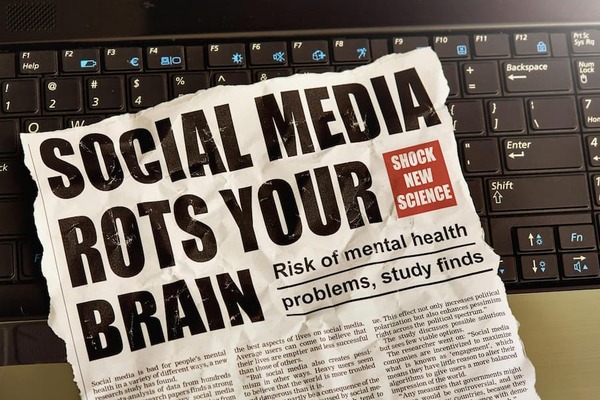Social media has become an integral part of modern life, influencing how we communicate, consume information, and perceive ourselves and others. While it offers various benefits, its psychological effects on mental health cannot be overlooked.
In today's digital age, social media platforms like Facebook, Instagram, and Twitter have revolutionized the way we interact and share information. The allure of likes, shares, and comments keeps us engaged, but beneath the surface lies a complex interplay of psychological effects.
Positive Psychological Effects
At its core, social media facilitates connection and socialization. It allows us to stay in touch with friends and family, regardless of geographical barriers. Moreover, it serves as a powerful tool for spreading awareness and mobilizing support for social causes.
Negative Psychological Effects
However, the constant exposure to curated content can lead to unhealthy comparisons and feelings of inadequacy. Users often succumb to the pressure of presenting a perfect image, fostering envy and self-doubt. Additionally, cyberbullying and online harassment pose significant threats to mental well-being.
Impact on Mental Health
The pervasive nature of social media has been linked to rising levels of anxiety and depression, and have bad effects on life health especially among adolescents. The relentless pursuit of likes and followers can exacerbate existing insecurities and contribute to poor self-esteem. Moreover, the perpetuation of unrealistic beauty standards can fuel body image issues and eating disorders.
.jpg)
Addiction and Dopamine
One of the most concerning aspects of social media is its addictive potential. The constant stream of notifications triggers the release of dopamine, a neurotransmitter associated with pleasure and reward. Over time, this can lead to psychological dependency and compulsive usage patterns.
Self-Esteem and Validation
Many users derive their sense of self-worth from the validation they receive online. The quest for likes and positive feedback becomes a measure of personal validation, often overshadowing real-world achievements. This reliance on external validation can erode self-esteem and undermine authentic relationships.
FOMO (Fear of Missing Out)
The fear of missing out drives many to remain perpetually connected, afraid of being left behind or excluded. This constant state of alertness disrupts sleep patterns and impairs cognitive function, leading to feelings of exhaustion and burnout.
Reduced Attention Span
The endless scrolling and rapid-fire content consumption associated with social media have been shown to diminish attention span and cognitive control. Users struggle to concentrate on single tasks for extended periods, opting instead for quick fixes of information and entertainment.
Strategies for Healthy Social Media Use
To mitigate the negative effects of social media, it's essential to establish healthy usage habits. This may involve setting boundaries around screen time, prioritizing real-life interactions, and cultivating mindfulness in online interactions.
.jpg)
Seeking Support
For those struggling with the psychological impact of social media, seeking support is crucial. This can range from professional therapy to peer support groups where individuals can share their experiences and coping strategies.
Conclusion
In conclusion, while social media offers unparalleled opportunities for connection and expression, its psychological effects on mental health are profound and multifaceted. By understanding these dynamics and implementing strategies for healthy usage, individuals can navigate the digital landscape with greater resilience and well-being.
FAQs
Is social media addiction a real concern?
- Yes, excessive usage of social media can lead to addictive behaviors and negative psychological consequences.
How can I protect my mental health while using social media?
- Setting limits on screen time, unfollowing toxic accounts, and seeking support when needed are effective strategies.
What role does social comparison play in the psychological effects of social media?
- Constant exposure to idealized images and lifestyles can foster feelings of inadequacy and low self-esteem.
Are certain demographics more susceptible to the negative effects of social media?
- Adolescents and young adults are particularly vulnerable due to their developmental stage and heightened reliance on social validation.
Can social media have positive effects on mental health?
- While it can foster connection and support, moderation is key to avoiding the pitfalls of excessive usage.



.jpg)
.jpg)
